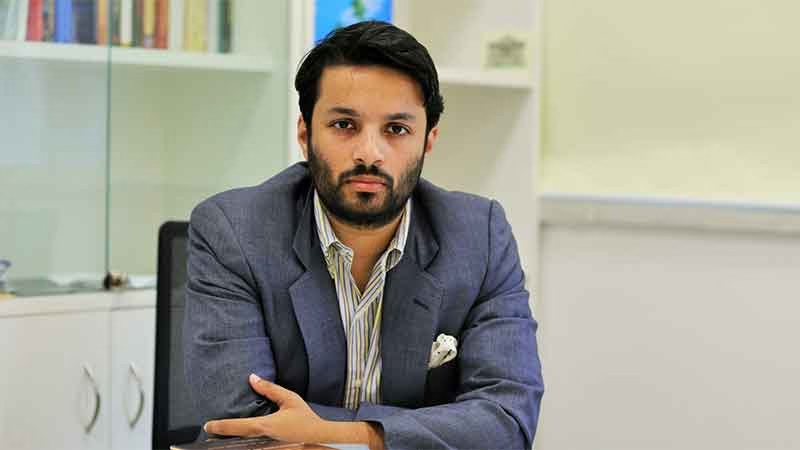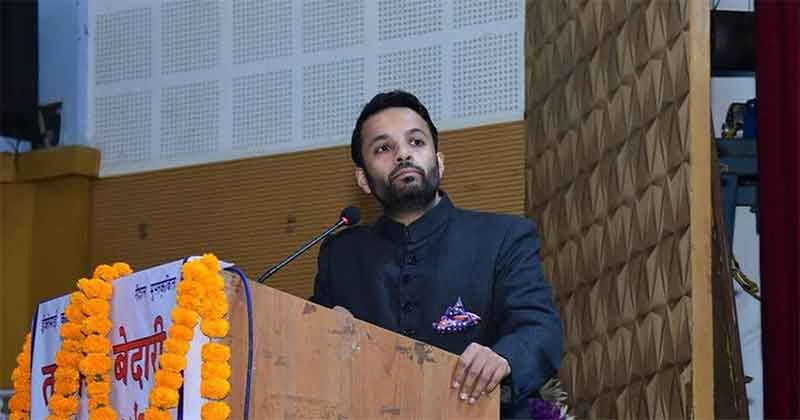
It should not matter that Dr. Ali Khan Mahmudabad is a respected academic, a compassionate mentor at Ashoka University, a citizen who advocates peace, or a husband whose wife is nine months pregnant. It should not matter that his family is now left to face emotional and physical distress alone.
What should matter is what over 1,200 academics have already voiced: that his arrest is an affront to free speech and reasoned discourse in a democracy.
“It is preposterous that we have come to such a pass in India that even praising the army, albeit while criticizing those who clamour for war, can now invite such targeted harassment and attempted censorship,” reads the letter signed by these academics — issued even before the police acted on the complaints from the Haryana State Commission for Women and a BJP Youth Morcha leader.
Perhaps, the Supreme Court of India might agree.
What Triggered the Arrest?
Earlier this month, in the wake of Operation Sindoor, Mahmudabad shared a social media post. In it, he criticized Pakistan’s military actions while lauding the strategic restraint shown by the Indian armed forces. He also praised the support Colonel Sophia Qureshi received from right-wing circles but urged them to extend similar empathy toward victims of mob lynching, bulldozing, and hate crimes within India.
He wrote:
“I am very happy to see so many right-wing commentators applauding Colonel Sophia Qureshi, but perhaps they could also equally loudly demand that the victims of mob lynchings, arbitrary bulldozing and others who are victims of the BJP’s hate mongering be protected as Indian citizens… Otherwise it’s just hypocrisy.”
The Haryana State Commission for Women took exception to the post, claiming it undermined women officers, vilified military action, and disrespected uniformed personnel.
Mahmudabad responded:
“I am surprised that the Women’s Commission, while overreaching its jurisdiction, has misread and misunderstood my posts to such an extent that they have inverted their meaning.”
Supporters among the academic community echoed this defense, asserting that his words were not only misread but deliberately distorted.
The Legal Charges and Arrest
Despite widespread academic support, two FIRs were lodged:
- One by the Chairperson of the Women’s Commission in Panchkula.
- Another by BJP Youth Morcha leader Yogesh Jatheri, who is also the sarpanch of Jatheri village.
According to IANS, Mahmudabad was booked under sections including:
- 196, 197, 152, and 299 of the Bharatiya Nyaya Sanhita (BNS)
- 353, 79, 152, and 169(1) in the other complaint
He was arrested on Sunday morning.
What the Supreme Court Has Said on Free Speech?
One of the key sections invoked — Section 196 of the BNS — pertains to promoting enmity between groups. However, in March 2024, the Supreme Court ruled in a case involving Congress MP Imran Pratapgarhi that:
“The effect of the spoken or written words must be considered from the lens of strong-minded individuals, not those who are weak or easily offended.”
Justice Abhay Oka and Justice Ujjal Bhuyan emphasized that criticism, even if disliked, is protected speech:
“The right of the person to express views must be respected and protected… even if a large number of persons dislike them.”
They reiterated that freedom of thought and expression is integral to a dignified life under Article 21 of the Constitution.
Sedition Rebranded?
Another alarming charge against Mahmudabad is under Section 152 of BNS — the rebranded version of colonial-era sedition law — now criminalizing “acts endangering sovereignty, unity and integrity of India.”
This section allows imprisonment from seven years to life, yet it remains unclear how Mahmudabad’s plea for peace and equal rights qualifies as such an act.
Not the First Time the Court Has Defended Free Speech
Over the years, the Supreme Court has repeatedly defended this fundamental right:
- Shreya Singhal v. Union of India (2015): Section 66A of the IT Act was struck down for being “vague and overbroad.”
- S. Rangarajan v. P. Jagjivan Ram (1989): The Court reminded the state that intolerance should not determine limits on free expression.
- MediaOne Ban Case (2023): The court warned against invoking “national security” to suppress dissenting voices.
Why Does This Matter More?
This article began by mentioning Mahmudabad’s personal circumstances not to diminish them, but to stress that even without them, his arrest is unjust.
His identity as a Muslim academic adds another layer to this moment — exposing how power often policies voices that challenge the status quo. The selective application of censorship laws suggests not just arbitrariness, but intent.
And so, this arrest is not only a personal tragedy. It is a broader warning about the shrinking space for free speech in a democracy.
As the Supreme Court reminded us in its ruling for Arnab Goswami:
“Liberty is not a gift for the few.”
Conclusion
Ali Khan Mahmudabad’s arrest is not just about one man’s words—it reflects a troubling pattern of shrinking space for dissent in India. When calls for peace and critique of injustice are met with criminal charges, it threatens the democratic ideals enshrined in our Constitution. As the Supreme Court has repeatedly emphasized, liberty and free expression are the cornerstones of a vibrant, pluralistic society. Silencing voices through misinterpretation and misuse of law undermines not only individual rights but the very foundation of democracy.
Subscribe to Our Newsletter
Get the latest CounterCurrents updates delivered straight to your inbox.
(Mohd Ziyauallah Khan is a freelance content writer & editor based in Nagpur. He is also an activist and social entrepreneur, co-founder of the group TruthScape, a team of digital activists fighting disinformation on social media.)













































